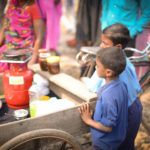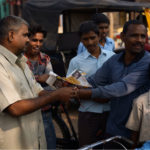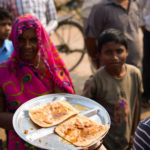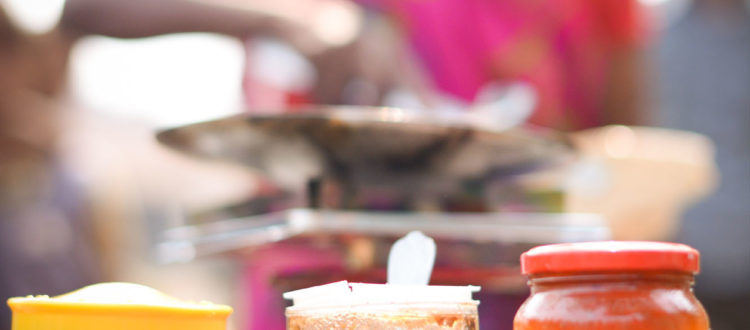Ek Paratas, panch roupia !



Glossary:
[1] Wallah : suffix designating a business owner
[2] Laï-chana : Salty mix of ick-peas, peanuts and rice, sold as ‘street food’ all across India.
[3] Rickshaw : three wheeled vehicle that is used for transportation in India’s busy cities as well as between small rural villages. Depending on the places, it can be cycle-rishaws or auto-rickshaws
[4] Tali : metal plate with different compartments used to serve meals
[5] « Ek paratas, Panch roupia !» : One parata for five roupies !
[6] « Bahut accha hai ! » : This is really good!

Après avoir choisi l’emplacement idéal – c’est à dire éviter de se placer en dessous de l’arbre où se posent les grues et d’empiéter sur la zone du laï-chana [2] wallah – nous installons notre matériel sur le cycle-rickshaw [3]. Un réchaud à gaz, deux louches, trois pots de confiture Devaduth, un exemplaire du Bargarh Mail – le journal local – sacrifié pour servir d’assiette de fortune, un grand thali [4] pour déposer les paratas, et bien sur la pâte préalablement préparée par Gurub venue spécialement de Kitahaï pour cette vente !

Le stock de pâte s’épuise peu à peu, et c’est au soleil couchant que se termine cette journée.
Lexique :
[1] Wallah : suffixe qui désigne le propriétaire d’un commerce ou d’un business
[2] Laï-chana : Mélange salé de riz soufflé, de pois chiches et de cacahouètes, vendu sous forme de street-food un peu partout en Inde.
[3] Rickshaw : véhicule à trois roues servant au transport de personnes en Inde. Selon les lieux, il peut s’agir de cycle-rishaw ou d’auto-rickshaw
[4] Tali : assiette métallique compartimentée pour servir les repas
[5] « Ek paratas, Panch roupia !» : Une parata pour cinq roupies !
[6] « Bahut accha hai ! » : C’est très bon !
